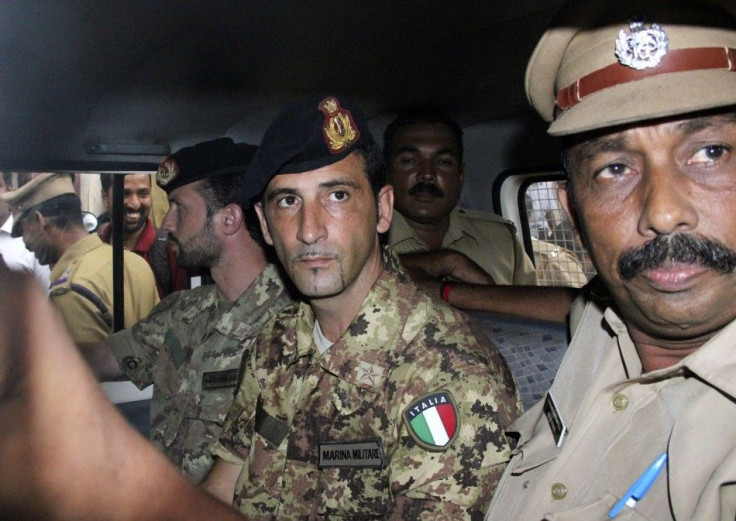India-Italy Diplomatic War: New Delhi Bans Italian Envoy From Leaving, Demands Returns Of Italian Marines

The Indian Supreme Court has ordered the Italian ambassador not to leave the country while the government reviews relations between New Delhi and Rome, in response to Italy’s decision to keep two Italian marines accused of murdering two Indian fishermen last year.
Daniele Mancini is now required to respond to the court’s notice by next Monday.
“We will comply with the Supreme Court order on the Italian marine’s issue. It is in the best interest of our country and in the best interest of our judicial system,” External Affairs Minister Salman Khurshid told reporters outside parliament in Delhi.
Earlier this week, the Italian foreign ministry said that the two marines in question, Massimiliano Latorre and Salvatore Girone -- who were allowed by the Indian Supreme Court to return to Italy to vote in February’s general elections -- will remain in their native country.
While out on an anti-piracy mission last year in the Indian Ocean aboard an oil tanker called the Enrica Lexie off the coast of southwestern India, Latorre and Girone, shot and killed two fishermen, Jelestine Valentine and Ajesh Binki, apparently mistaking them for pirates.
Italian authorities now claim that since the alleged murders took place in international waters, the marines should face trial in Italy, citing that India has no jurisdiction in the case.
The situation has created a diplomatic crisis between India and Italy, two countries that have generally enjoyed good relations.
In unusually blunt language, the Indian Attorney General, G. Vahanvati, told the Supreme Court judges that Italy’s refusal to return the marines represents a “breach of undertaking given to the highest court of the land, and the government is extremely concerned about it.”
On Wednesday, Indian Prime Minister Manmohan Singh warned that "there will be consequences" if Italy did not return the marines to India immediately, adding that Italy’s refusal to do so was "unacceptable" and even accused Rome of violating "every rule of diplomatic discourse."
Opposition MPs and left-wing lawmakers from Kerala (the home of the murdered fishermen) have demanded that Singh’s government take harsh action against the Italians.
In response, Italy’s foreign minister is holding his ground.
“We have … solid reasons to proceed in the direction of international arbitration," Giulio Terzi told reporters as he arrived at an international conference in Israel, according to Press Trust of India.
"The Indian government is amply apprised of all it needs to know about our reasons, as do many of our partners.”
Meanwhile, India’s ministry of external affairs plans to review and examine the “entire expanse of our interaction with Italy,” suggesting some diplomatic ties may be amended or withdrawn.
Among other things, the Indian Ambassador-designate to Italy, Basant Kumar Gupta, has cancelled a scheduled flight to Rome.
It is not clear if the ministry plans to eventually expel Ambassador Mancini or not.
Now the United Nations has waded into these murky waters -- Secretary-General Ban Ki-moon called for a peaceful resolution to the diplomatic flap in accordance with international law.
© Copyright IBTimes 2025. All rights reserved.





















